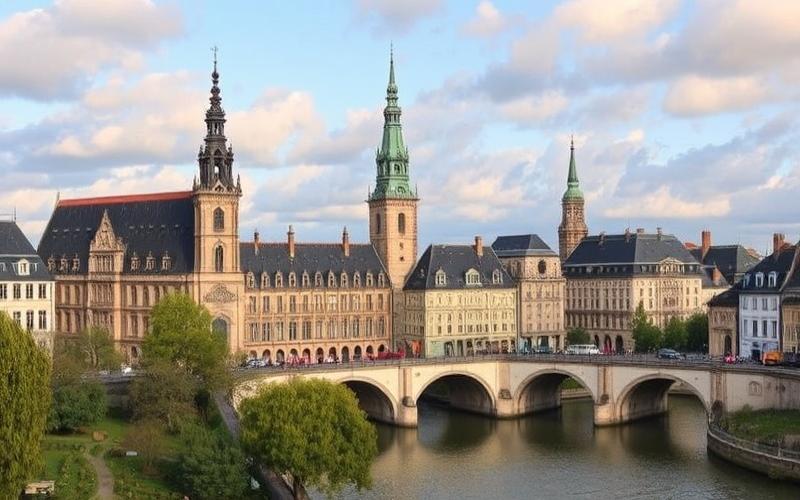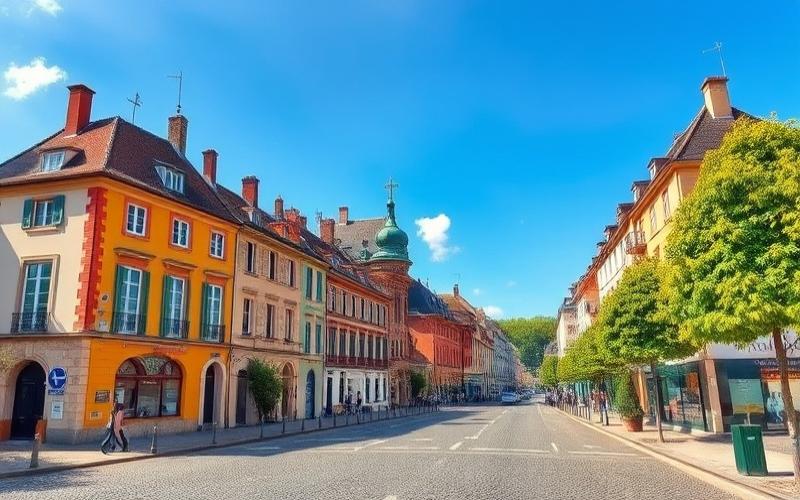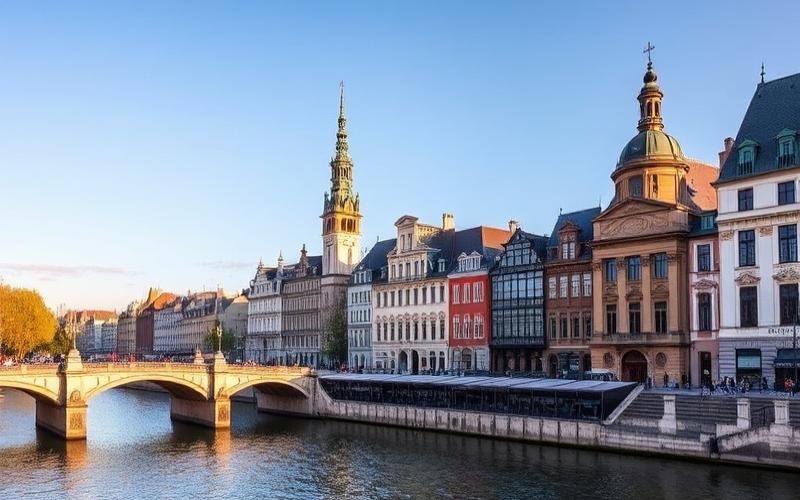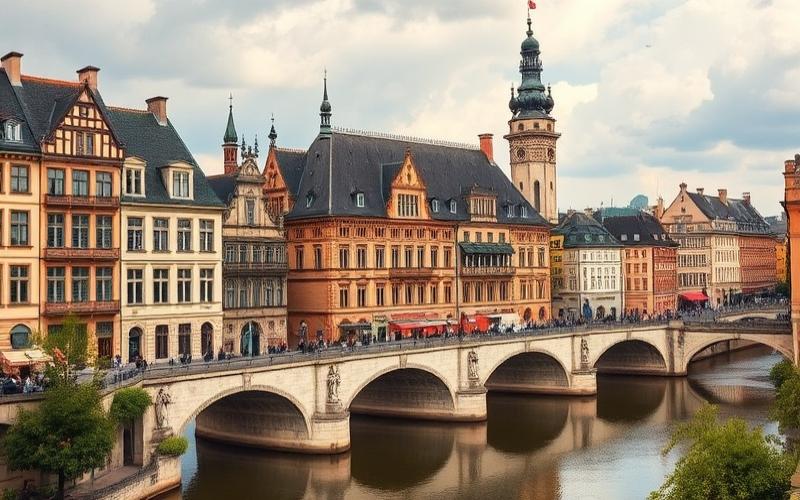
 Published on and written by Cyril Jarnias
Published on and written by Cyril Jarnias
Luxembourg, a small prosperous country nestled in the heart of Europe, attracts many expatriates thanks to its dynamic economy and high quality of life. However, this prosperity comes at a cost, and the Grand Duchy is known to be one of the most expensive countries in Europe. Before packing your bags, it is essential to fully understand the local cost of living and the budget you’ll need. Let’s dive into the details to help you best prepare for your move to Luxembourg.
A High Standard of Living Comes at a High Price
Luxembourg has an overall cost of living that is higher than its European neighbors. According to the latest data, living in Luxembourg costs on average:
– 17% more than in France – 23% more than in Spain – 40% more than in the Czech Republic
Concretely, the average monthly budget for a single person amounts to about €2,700 (compared to €1,700 in France), while a family of 4 will need between €6,000 and €8,000 per month to live comfortably.
Housing, the Main Expense
Unsurprisingly, housing is the heaviest burden in expatriates’ budgets. Rents in Luxembourg are among the highest in Europe:
– Studio in the city center: €1,000 – €1,500/month – 2-room apartment: €1,500 – €2,000/month – 3-bedroom house in the suburbs: €2,500 – €3,500/month
For comparison, rents are on average 62% higher than in France. Property purchase is also very expensive, with prices per square meter that can exceed €10,000 in the capital.
Good to Know:
To reduce this expense, many cross-border workers choose to settle in neighboring countries (France, Belgium, Germany) where real estate is more affordable.
Daily Life: Prices That May Surprise You
Beyond housing, the cost of daily living is also high in Luxembourg. Here are some example prices to give you an idea:
- Bread (500g): €2.50
- Milk (1L): €1.20
- Meal at an inexpensive restaurant: €15-€20
- Dinner for 2 at a nice restaurant: €80-€100
- Monthly public transport pass: Free (since 2020)
- Gasoline (1L): €1.50
- Taxi (base fare): €10
- Movie ticket: €10-€15
- Gym membership: €50-€80/month
- Mobile phone plan: €20-€30/month
- High-speed internet: €40-€60/month
Good to Know:
Food prices are on average 7.4% higher than in France. Many residents do their grocery shopping in neighboring countries to save money.
Budget to Plan for an Expatriate: Concrete Examples
The budget needed to live comfortably in Luxembourg will of course depend on your personal situation and lifestyle. Nevertheless, here are some estimates to help you plan:
For a single person:
– Total monthly budget: €2,700 – €3,500 – Including: – Rent (studio/1-bedroom): €1,000 – €1,500 – Utilities (electricity, water, heating): €150 – €200 – Food: €400 – €500 – Transportation: €50 – €100 – Leisure and entertainment: €300 – €400 – Miscellaneous: €300 – €400
For a couple with 2 children:
– Total monthly budget: €6,000 – €8,000 – Including: – Rent (3-room apartment): €2,000 – €2,500 – Utilities: €250 – €350 – Food: €1,000 – €1,200 – Transportation: €200 – €300 – School fees: €500 – €1,000 (international school) – Childcare: €1,000 – €1,500 – Leisure and entertainment: €500 – €700 – Miscellaneous: €500 – €700
Good to Know:
Salaries in Luxembourg are among the highest in Europe, with an average annual salary of €73,735. This helps partially offset the high cost of living.
Benefits That Offset the High Cost
While Luxembourg is expensive, it also offers many benefits that justify its appeal to expatriates:
– An efficient healthcare system – High-quality education – Free public transport throughout the country – An international and multicultural environment – Favorable taxation for certain profiles – Excellent quality of life and preserved natural surroundings
Did you know? Luxembourg regularly ranks among the countries offering the best quality of life in the world.
Tips for Managing Your Budget in Luxembourg
To fully enjoy your expatriation without breaking the bank, here are some tips:
– Choose housing in the suburbs or in neighboring countries – Do your grocery shopping in neighboring countries – Take advantage of free public transport – Compare offers for insurance, phone, internet… – Prioritize free activities (many parks, museums…) – Consider carpooling for your trips
Good to Know:
The official website Guichet.lu provides a lot of practical information for newcomers to Luxembourg.
In conclusion, moving to Luxembourg certainly represents a significant financial investment, but in return offers an exceptional quality of life and great professional opportunities. With good preparation and rigorous budget management, you can fully enjoy all the advantages that the Grand Duchy has to offer.
Disclaimer: The information provided on this website is for informational purposes only and does not constitute financial, legal, or professional advice. We encourage you to consult qualified experts before making any investment, real estate, or expatriation decisions. Although we strive to maintain up-to-date and accurate information, we do not guarantee the completeness, accuracy, or timeliness of the proposed content. As investment and expatriation involve risks, we disclaim any liability for potential losses or damages arising from the use of this site. Your use of this site confirms your acceptance of these terms and your understanding of the associated risks.























